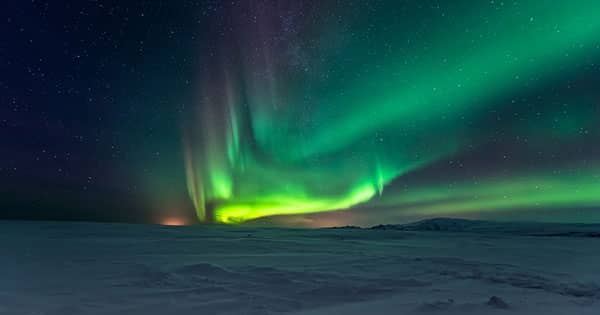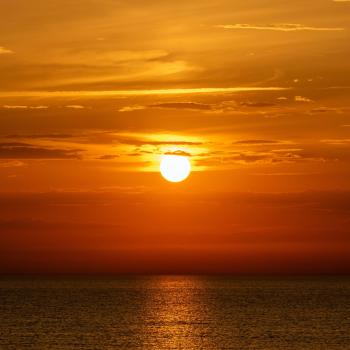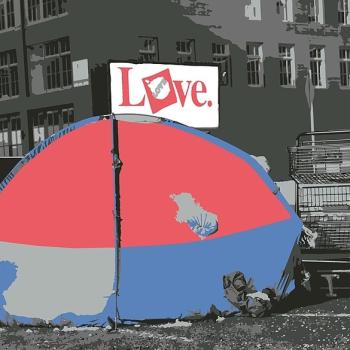 |
| SurangaSL / Shutterstock.com |
Note: This is the third of a nine-part series of personal vignettes that explore the challenges of the human journey from cradle to grave. Start at the beginning here.
Midway through rabbinical school, I had a summer internship with a small synagogue in Fairbanks, Alaska. I became friends that summer with Dave, an environmental activist and wilderness guide who raised sled dogs on the side. Dave wasn't Jewish or a member of the congregation, and it was always a welcome respite from my quasi-public role and pulpit responsibilities when we hung out. Dave and I stayed out late many nights under the light of the midnight sun, drinking beer and playing volleyball at a roadhouse called The Howling Dog, just north of town.
Dave lived off the grid with his dog Cody in a cabin on the outskirts of Fairbanks. In a number of respects, I envied his situation. Dave had no attachments, nothing to hold him down. Since he eked out a living as a guide, Dave's time was more or less his own. While I'd always been torn between the pleasures of radical freedom and the comforting bonds (yet also constraints) of community, Dave had made a clear choice that favored the former arrangement. He worked when he wanted to work, and he was responsible for no person other than himself.
At my request, Dave taught me the basics of dog mushing before I had to return to New York City to resume my studies. Since it was summer, we used a jerry-rigged ATV in place of a sled, and the dogs pulled us down dirt roads much as they would when there was snow on the ground. I learned the differences between lead, swing, and wheel dogs; how to put on harnesses and attach tethers and static lines; what to do when ascending and descending hills. While I'd ridden on horses many times, I'd never before felt the unique sensation of being pulled by a powerful team of huskies and malamutes.
I couldn't wait to mush "for real." I returned to Alaska that winter, and Dave and I took two dog teams on a five-day foray into the White Mountains, a starkly beautiful area north of Fairbanks. Virtually everything about that trip — from camping in the snow to making turns on my sled without falling off — was a challenge. But I was hooked on dog mushing. And I was especially hooked on mushing in the Far North.
It took another two years before I was able to make it back for a more intense and remote trip, this time in the wilderness of the Brooks Range, a majestic wedge of mountains that cuts across the northern half of Alaska and that is well north of the Arctic Circle. With the exception of a few mining and Native communities, the Brooks Range is mostly uninhabited, and it teems with wildlife: wolves, lynx, wolverines, Dall sheep, black bears, grizzlies, moose, and caribou that number in the scores of thousands.
I'd been an ordained rabbi for less than a year, and I was already struggling, both with the intense commitment involved in serving a congregation and with finding spiritual uplift in my chosen path. While it was a spiritual impulse that had motivated my decision to become a rabbi, after five years of training and a year in the field, my experience of Jewish professional life had been about as uninspiring as I could have imagined. I spent more time dealing with politics and self-entitled parents than I did focused on prayer, contemplation, or the existential needs of congregants. I had to get (far) away for a while — for my own sake, as well as for those men and women I might one day serve.
I had to find a new source of inspiration.
The day after I landed in Fairbanks, Dave and I loaded over a dozen barking dogs into the transport track above his truck, hauled and secured our two sleds over that, and drove north up the Dalton Highway, a road that extends all the way to the hulking oil-drilling rigs at Prudhoe Bay on the edge of the Arctic Ocean. Our starting point was near the mining camp of Nolan, about a twelve-hour drive from Fairbanks. We reached the camp at two in the morning. The dogs were silent. A few of the miners were still awake in one of their trailers (they had just finished their shift) and they invited us in to warm up. We spoke with them about mining, dogs, and the condition of the trail we were about to mush on. Then the two of us slept in the truck while our dogs slept to the side of the road, each one attached by its collar to the picket line that linked them together.




